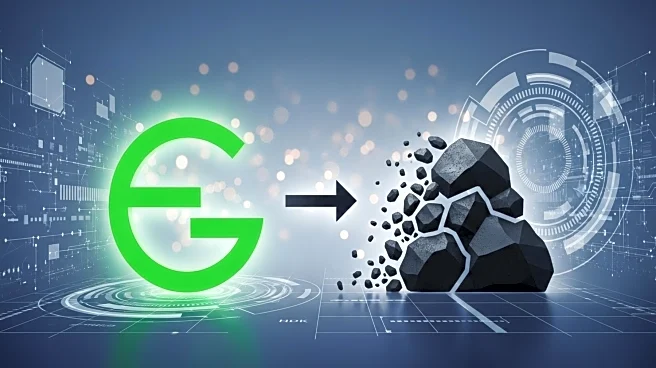What is the story about?
What's Happening?
The United Nations has spotlighted South Africa's efforts to transition from coal to clean energy, emphasizing international partnerships that have increased funding from $8.5 billion to $11.6 billion. This initiative is part of a broader strategy to enhance energy security and protect workers and communities during the shift to renewable energy sources. The UN is encouraging African nations to present new national climate plans, which are seen as opportunities to boost economies and living standards. South Africa's transition is highlighted as a model for other countries, showcasing the potential for large-scale investment and job creation through clean energy initiatives.
Why It's Important?
South Africa's transition from coal to clean energy is crucial for reducing carbon emissions and enhancing energy security. The increased funding and international partnerships demonstrate a commitment to sustainable development and climate mitigation. This transition is expected to create new industries and jobs, contributing to economic growth and improved living standards. As Africa faces significant climate impacts, the shift to renewable energy is vital for building resilient economies and infrastructure. South Africa's example provides a blueprint for other nations to follow, highlighting the importance of ambitious climate plans in driving economic and environmental benefits.
What's Next?
Countries are urged to submit their Nationally Determined Contributions (NDCs) ahead of key milestones, including the UN Climate Summit and COP30 in Brazil. These plans are essential for limiting global warming and unlocking economic opportunities. South Africa's continued progress in renewable energy development will be closely monitored, with potential for further international support and investment. The UN's call for ambitious climate plans underscores the need for global cooperation in addressing climate change and achieving sustainable development goals.














